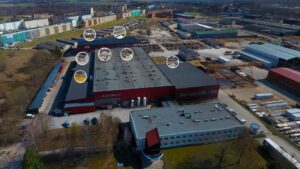Quality Control (QC)
What is Quality Control (QC) in steel fabrication?
Quality Control (QC) is the process of inspecting and testing products during and after production to ensure they meet the specified quality standards and design specifications.
In steel fabrication, QC activities include material inspections (verifying certified mill test reports and grades), fit-up and weld inspections (checking weld sizes, lengths, and detecting any defects via methods like visual inspection or NDT), dimensional checks of fabricated pieces against drawings, and a final inspection of coating and overall assembly before delivery.
The primary goal of Quality Control is to catch any defects or deviations so that they can be corrected, thus preventing faulty products from reaching the customer.
For a small shop, Quality Control might be performed by a dedicated quality inspector or by the shop lead as part of their role.
It’s important that QC is systematic. For example, using checklists at key stages (after welding, after painting), rather than ad hoc.
Effective Quality Control helps maintain the shop’s reputation (especially if they are certified to standards like ISO 9001 or AISC certification), reduces rework and project delays, and ensures compliance with any code requirements (like AWS D1.1 welding criteria or paint thickness requirements).
While Quality Assurance (QA) is about the systems to prevent defects, Quality Control is about detecting issues in the product itself and fixing them. In practice, both concepts work hand-in-hand to deliver consistent quality.



